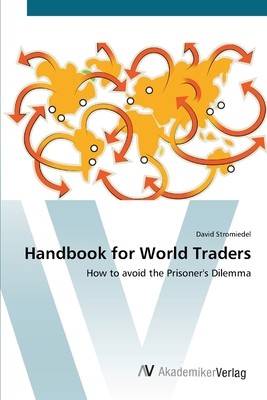
- We will send in 10–14 business days.
- Author: David Stromiedel
- Publisher: AV Akademikerverlag
- ISBN-10: 3639444825
- ISBN-13: 9783639444827
- Format: 15.2 x 22.9 x 0.6 cm, softcover
- Language: English
- SAVE -10% with code: EXTRA
Reviews
Description
Revision with unchanged content. Over the past few years, world trade has experienced a renaissance of protectionist tendencies. Protectionism, actually an idea of 16th century mercantilism, not only has shown to be a popular measure in de-veloping countries to shelter own infant industries, but repeatedly was and is utilized by major industrialized countries to stay ahead of com-peting nations. Despite the promising compromises and the negotiation success of the World Trade Organisation (WTO) in current and previous negotiation rounds, bilateral relationships between countries often seem to undermine the idea of a world of free trade. In order to demonstrate why precisely the most influential actors of world trade do not manage to get around the prisoner's dilemma, the author David Stromiedel comprehensively and convincingly describes motivation and strategic decision making of these players. After a basic introduction to game theory, the author highlights international decision making mechanisms in world trade (EU, USA and WTO), yet before analysing historic and current conflicts in global exchange of goods and services. A concluding overall resume summarizes the basic requirements for a reformed world trade system, which may release the dominant players USA and EU from the prisoners' dilemma's grip.
EXTRA 10 % discount with code: EXTRA
The promotion ends in 4d.17:25:53
The discount code is valid when purchasing from 10 €. Discounts do not stack.
- Author: David Stromiedel
- Publisher: AV Akademikerverlag
- ISBN-10: 3639444825
- ISBN-13: 9783639444827
- Format: 15.2 x 22.9 x 0.6 cm, softcover
- Language: English English
Revision with unchanged content. Over the past few years, world trade has experienced a renaissance of protectionist tendencies. Protectionism, actually an idea of 16th century mercantilism, not only has shown to be a popular measure in de-veloping countries to shelter own infant industries, but repeatedly was and is utilized by major industrialized countries to stay ahead of com-peting nations. Despite the promising compromises and the negotiation success of the World Trade Organisation (WTO) in current and previous negotiation rounds, bilateral relationships between countries often seem to undermine the idea of a world of free trade. In order to demonstrate why precisely the most influential actors of world trade do not manage to get around the prisoner's dilemma, the author David Stromiedel comprehensively and convincingly describes motivation and strategic decision making of these players. After a basic introduction to game theory, the author highlights international decision making mechanisms in world trade (EU, USA and WTO), yet before analysing historic and current conflicts in global exchange of goods and services. A concluding overall resume summarizes the basic requirements for a reformed world trade system, which may release the dominant players USA and EU from the prisoners' dilemma's grip.


Reviews